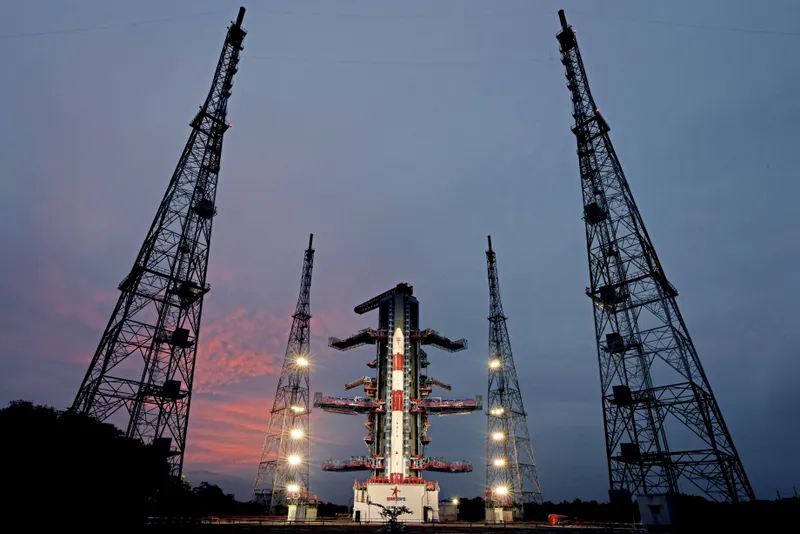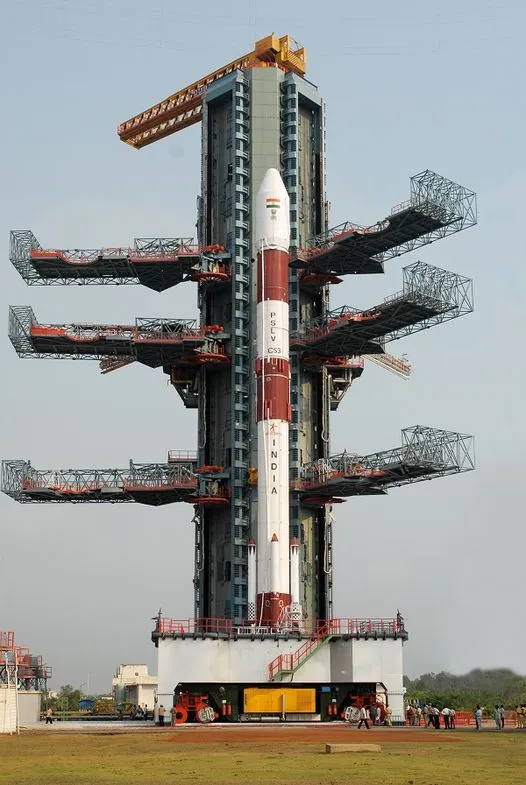Spacetech startups Dhruva Space, Dignatara set to launch their payloads with ISRO
Dhruva Space and Dignatara Research and Technologies will be launching their spacetech systems on June 30 at 6:00 pm IST, becoming the first private sector players in India to launch their payloads from Indian soil.
Marking the beginning of India’s private sector involvement in space launches, and , are set to launch their payload today, June 30, from Satish Dhawan Space Centre, Sriharikota.
Dhruva Space's Dhruva Space Satellite Orbital Deployer (DSOD 1U)—a technology demonstration payload, and Digantara's ROBust Integrating Proton Fluence Meter (ROBI)—a Proton dosimeter payload were authorised by IN-SPACe (Indian National Space Promotion and Authorisation Center), it said in a statement.
What’s in the payload
Dhruva Space, founded in 2012, will test its satellite deployer technology. These deployers will be used internally by the startup when it launches its satellites or when its clients deploy them. The company also plans to sell the deployer.
“We are the first deployer manufacturers in India,” Chaitanya Dora, CFO of Dhruva Space, told YourStory, adding, “Getting a space qualification is a very critical part of any mission or any product that would be sold in the space industry. In this mission, we are getting that space heritage for our deployer as we look to enter the market full-fledged with the deployer.”
The current deployer is 1 CubeSats and can be scaled up to as many as 12 or 16 cube satellites, which can be relatively large satellites or multiple smaller ones. The company already has multiple MoUs (Memorandum of Understanding) in place for these deployers.
Meanwhile, Bengaluru-based Digantara, founded in 2018, will be launching a weather satellite that will be used for monitoring weather with its patented technology.
“The first mission that we are launching is a system to detect radiation in space that will help us physically to launch and track radiation in orbit,” Anirudh N Sharma, CEO of Digantara, told YourStory.
“Bringing the solution to the market is quite essential and this is the first step towards that. This is a very crucial moment for our company and our vision. After the launch, the data we get back is quite important for the credibility of our solution,” he added.
It took the Digantara team eight months to design and develop ROBI, and another eight to nine months for launch.
In February this year, close to 40 Starlink satellites were lost due to a geomagnetic storm. Anirudh explained that such activities and more can be predicted using the Digantara system.

PSLV-C53/DS-EO Source - ISRO
The launch
ISRO’s PSLV-C53/DS-EO mission is scheduled to launch at 1800 hours IST from the second launch pad at Satish Dhawan Space Centre, Sriharikota. The countdown of 25 hours to the launch began at 1700 hours IST on June 29, 2022, it said in a statement.
PSLV-C53, ISRO said, is the second dedicated commercial mission of NewSpace India Limited (NSIL). It is designed to put the DS-EO satellite along with two other co-passenger satellites from Singapore in orbit. This is the 55th mission of PSLV and the 15th mission using the PSLV-Core Alone variant. It is the 16th PSLV launch from the second launch pad.
The mission proposes to demonstrate the utilisation of the spent upper stage of the launch vehicle as a stabilised platform for scientific payloads after the separation of the satellites, said ISRO in a statement.

PSLV-C53/DS-EO Source - ISRO
PSLV-C53 carries three satellites—DS-EO, weighing 365 kg, and NeuSAR, a 155 kg satellite belonging to Singapore. The third satellite is a 2.8 kg Scoob-1 of Nanyang Technological University (NTU), Singapore. The PSLV Orbital Experimental Module (POEM) carries six payloads, including two from Digantara and Dhruva Space, enabled through IN-SPACe and NSIL.
“What we are developing is/will be needed for the future of the space industry and for that we have to understand how they operate. We want to be the enabler of the space ecosystem by knowing the data represents the or by understanding what is happening in and creating the world’s largest database,” said Anirudh from Digantara.
“This launch is taking us a step closer to building maps for space and building that is something that no one in the world has done before and having the solution in the market kind of revolutionised the way space mission operations are done,” he added.
“Our focus has been to build satellites, help launch them and build the gourd support to communicate and utilise the satellite. We are doing this to build an eye towards constellations and we are working towards a full-stack solution where each of the verticals complements each other very well. At the same time bring down the overall cost of the system so that commercial services that would be provided using the satellite are going to be commercially viable.” said Chaitanya from Dhruva.
He further added that the mission will give the startup ‘space heritage’. “This would allow us to sell the deployers confidently to our customers, taking them into confidence that their system would work in perfect safety,” he added.
The launch can be watched live here.
(The story was updated to correct a typo.)
Edited by Kanishk Singh








